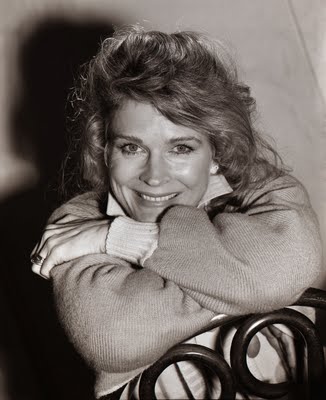
I always prefer to work in the Studio. It isolates people from their environment. They become in a sense…symbolic of themselves. I often feel that people come to me to be photographed as they would go to the doctor or a fortune teller – to find out how they are. So they’re dependent on me. I have to engage them. Otherwise there’s nothing to photograph. The concentration has to come from me to involve them. Sometimes the force of it grows so strong that sounds in the studio go unheard. Time stops. We share a brief and intense intimacy. But it’s unearned. It has no past…no future. And when the sitting is over- when the picture is done – there is nothing left except the photograph…the photograph and a kind of embarrassment. They leave…and I don’t know them. I’ve hardly heard what they’ve said. If I meet them a week later in a room somewhere, I expect they won’t recognize me. Because I don’t really feel I was really there. At least the part of me that was…is now in the photograph. And the photographs have a reality for me that the people don’t. It’s through the photographs that I know them. Maybe it’s in the nature of being a photographer. I’m never really implicated. I don’t have to have any knowledge. It’s all a question of recognitions.
Richard Avedon
It was sometime in the winter of 1986 that the Georgia Straight dispatched me to a mansion in Shaughnessy to photograph Candice Bergen. She was filming an episode of CBC’s highly rated Lies From Lotus Land (why does the CBC not do anything like it now?). The other actors in the episode were Bruno Gerussi, Jackson Davies and a striking and darkish young man I had never seen before.
I was off on the wrong foot from the very beginning. I approached Ms Bergen and told her I had been assigned to photograph her. She immediately began to shout at the director and said, “Why was I not informed? I have no makeup. I am not going to pose for anybody without makeup. I am simply not ready for this.” I interjected, “You are perhaps one of the few Hollywood actresses who do not need makeup. You are fine as you are.” She looked at me and melted just a bit and told me, “Wait about 30 minutes and I will pose for you in the attic upstairs.”
I went to the attic and found an empty room with a cane back chair. In 1986 I was still crazy about 40s Hollywood lighting and I had brought my portable spotlight. I set it up and used a secondary light (with a grid) as a hair light.
She came into the room, sat down and smiled. I noticed her Olympic ski jump nose (sort of like Richard Nixon’s) and I knew she would never do anything but look straight at my camera. I attempted to speak to her. I attempted to connect in some way. All I got was that wonderful smile. I remembered friends who had told me that when she appeared in Mike Nichols 1971 film Carnal Knowledge with Jack Nicholson critics commented that her sexual climax scene was devoid of any passion or emotion. The critics asserted that her father’s (Edgar Bergen) wooden dummy, Charlie McCarthy was capable of showing much more emotion.
That very week I had purchased For the World to See – The Life of Margaret Bourke – White. It was Bourke-White who had photographed Gandhi spinning cotton and it was the wide dissemination of that photograph that finally convinced the British to give up their empire in the Indian sub continent. Candice Bergen had played Bourke White in Richard Attenborough’s 1982 film Gandhi.
I decided to use a technique that I had never ever tried before. I was going to see if an insult would force Bergen out of her protective shell.
“Ms Bergen, I just received a wonderful book on Margaret Bourke-White. After some thought, I have come to the conclusion that you had nothing in common with the photographer. A few years after the film, Bergen had become an amateur/professional photographer and she appeared in film and camera ads in photo magazines. She preceded our very own Bryan Adams but was never even remotely as good as other amateur/professionals like Senator Barry Goldwater, Dennis Hopper, Oscar Peterson and The Police guitarist Andy Summers.
I watched her face through the big viewfinder of my Mamiya RB-67 and I noticed nothing. There was not a flicker of acknowledgement of my insult. She kept on smiling. I thanked her. She smiled and left the room leaving with no more knowledge of what she was about than when she had come in. I went downstairs and watched the actors in their roles. I was mesmerized by the performance of the young man. I lingered. During a break I asked him if he would pose for me, “Sure he,” said, “But it will have to be in an hour when our next break is.” I lingered for a bit longer and thought to myself, “I want to go home now. This guy will probably never amount to anything.” I left.
And that is how my failure to photograph Candice Bergen was compounded by my not taking a picture of a most willing Keanu Reeves.